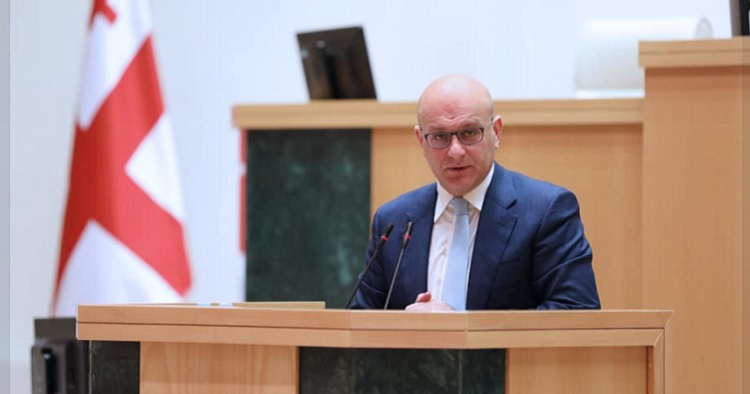Finance Minister: Georgian economy lost $1.3 bln this year amid pandemic, expected to lose $800 mln next year

Finance Minister Matchavariani noted that this year the trade balance (difference between the value of a country's exports and the value of its imports) has deteriorated by $700 million and reached $2 billion. Photo: Ministry of Finance.
Based on the latest IMF forecast the Georgian economy will have lost $1.3 billion this year as a result of the pandemic, while it is expected that it will lose an additional $800 million next year, said Finance Minister Ivane Matchavariani earlier today.
The pandemic and the resulting uncertainty have led to a decline in investment around the world, which has also been reflected in the rate of foreign direct investment in Georgia. This year, FDIs are expected to decrease by 30 per cent, which is a loss of about $400 million,” said Matchavariani.
He noted that the tourism sector which is 10 per cent of the total economy has been affected amid the pandemic. Matchavariani noted there has been a 10 per cent decrease in exports this year.
Finance Minister Matchavariani noted that this year the trade balance (difference between the value of a country's exports and the value of its imports) has deteriorated by $700 million and reached $2 billion.
During the presentation of the 2021 state budget, Matchavariani presented various scenarios for reducing debt and deficit.
Based on one of the scenarios, the deficit returns to 3 per cent of GDP in 2023, and then drops to 2.5 per cent, although the reduction of the deficit is partly at the expense of capital projects, noted Matchavariani.
He said that based on the scenario capital expenditures will fall to 6.5 per cent relative to GDP, while the debt ratio will be around 57 per cent, noting that ‘it meets the requirements of the law, although it is still high and carries significant risks.’
If we keep capital expenditures at 8 percent of GDP, in this scenario, the deficit will be up to 4 percent and debt will rise to 63 percent, which will inevitably lead to a deterioration in our ratings and additional pressure on the economy,” he noted.
Under the alternative scenario, in order to reduce the debt to 50 percent of GDP, it is necessary to reduce the deficit to 1-1.5 per cent, which, according to the minister, is impossible at the expense of capital projects.
Consolidation at the expense of capital projects is ineffective. Therefore, an alternative strategy is needed to reduce the debt,” said Matchavariani.
He said that reducing current expenditures is impossible, as Georgia has one of the lowest current expenditures among European and CIS countries and the only way of fiscal consolidation and debt reduction is to mobilize additional resources.
 Tweet
Tweet  Share
Share